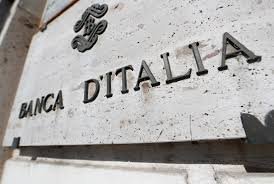Panetta Highlights Regulatory Challenges and Cybersecurity Risks in Digital Finance

Fabio Panetta, Governor of the Bank of Italy, has reaffirmed the country’s commitment to strengthening financial and cybersecurity safeguards in the cryptocurrency sector. Speaking at the 31st Assiom Forex Congress on February 15, Panetta addressed the growing challenges posed by digital finance, emphasizing the need for clear regulations, risk management frameworks, and coordinated international oversight.
According to Panetta, Italy’s central bank and its securities regulator, Consob, are actively engaging with crypto service providers to establish robust financial protections and mitigate cybersecurity threats. His remarks come at a time when the global crypto industry faces heightened regulatory scrutiny, particularly due to **concerns over money laundering, financial instability, and potential threats to traditional banking institutions.
Diverging Regulatory Approaches: Europe vs. the U.S.
Panetta underscored the stark differences between European and U.S. regulatory frameworks for digital assets, warning that these discrepancies could create vulnerabilities within the financial system.
In contrast to the United States' fragmented regulatory approach, Europe has introduced the Markets in Crypto-Assets Regulation (MiCA)—a comprehensive legal framework designed to provide clarity and uniformity across EU member states. MiCA establishes clear guidelines for the classification, oversight, and compliance requirements of digital asset firms, creating a structured and transparent regulatory landscape.
Meanwhile, the U.S. continues to adopt a case-by-case approach, where cryptocurrencies are regulated based on their classification as securities or commodities. Panetta pointed out that the recent executive order on digital financial technology, issued by the Trump administration on January 23, 2025, suggests a more open stance toward integrating cryptocurrencies into the mainstream financial system.
However, Panetta cautioned that these regulatory inconsistencies between Europe and the U.S. could be exploited by crypto operators, allowing them to circumvent financial regulations and potentially undermine market stability.
“These regulatory divergences between the United States and Europe must be carefully assessed as U.S. authorities clarify their stance. Understanding their global implications will be crucial for financial integrity.”
To mitigate risks, the Bank of Italy is working closely with Consob to assess the vulnerabilities associated with digital assets, including liquidity risks as more investors rely on online platforms for deposits and withdrawals.

Tighter Oversight for Crypto Firms in Italy
In response to growing risks, Italian authorities are implementing stricter regulatory measures to ensure that crypto firms operating in the country adhere to high financial and security standards.
“The Bank of Italy’s role is to ensure that crypto entities have adequate safeguards to manage strategic, operational, and financial risks, as well as combat money laundering and prevent the circumvention of international sanctions,” Panetta stated.
One of the key concerns raised by Panetta is the increasing influence of major technology companies issuing their own digital tokens. He warned that the widespread adoption of Big Tech-backed digital currencies could erode the role of traditional banks, potentially disrupting credit markets and financial intermediation.
“If digital assets issued by large technology firms become widely adopted, commercial banks risk losing a significant part of their core operations,” he cautioned. “A coordinated global regulatory response is necessary to prevent such disruptions.”
Italy Strengthens Crypto Market Surveillance
As part of its efforts to enhance financial stability, Italy has significantly bolstered its regulatory oversight of the cryptocurrency market, aligning its approach with the MiCA regulatory framework.
Key measures introduced in 2024 aim to:
- Enhance market surveillance to detect suspicious trading activity.
- Combat insider trading and prevent market manipulation in digital asset markets.
- Introduce stricter compliance requirements for crypto exchanges and service providers.
To reinforce these protections, Italy has enacted new legislation that imposes substantial financial penalties for violations, including:
- Fines ranging from $5,400 to $5.4 million for offenses such as insider trading, market manipulation, and unauthorized disclosure of confidential information.
These measures reflect Italy’s determination to foster a secure, transparent, and well-regulated crypto industry, ensuring that digital assets do not pose systemic risks to the broader financial sector.

The Road Ahead: A Coordinated Global Approach to Crypto Regulation
Panetta’s remarks highlight the ongoing challenges regulators face in managing the rapid evolution of digital finance. As cryptocurrency markets continue to expand and integrate with traditional financial systems, the need for global regulatory coordination has never been more urgent.
While Europe has taken a proactive stance with MiCA, the U.S. regulatory landscape remains uncertain, creating potential gaps that crypto operators could exploit.
To prevent financial instability and ensure consumer protection, Panetta stressed that regulatory bodies worldwide must work together to establish harmonized standards, minimizing loopholes that could be used for money laundering, fraud, or illicit financial activities.
With Italy tightening its market surveillance, engaging in industry-wide discussions, and pushing for coordinated international oversight, the country is positioning itself as a leader in responsible crypto regulation—ensuring that digital finance innovations align with financial stability and security principles.
If global regulators can bridge their differences and enforce coherent policies, the future of digital finance could be more secure, transparent, and resilient—benefiting both investors and the broader financial system.
Sending you an Ecency curation vote!
